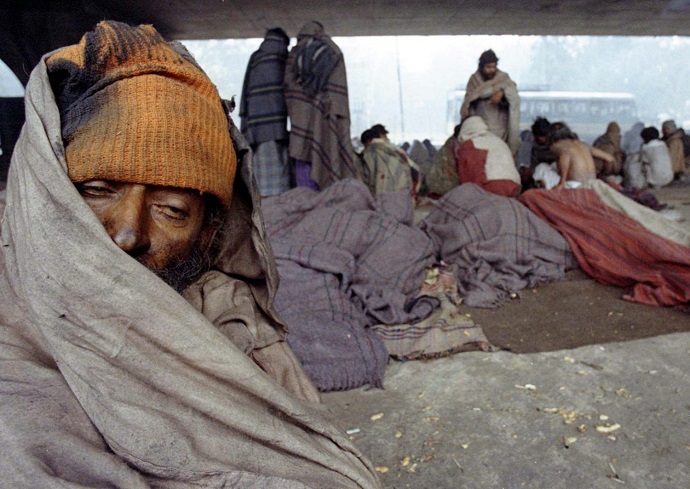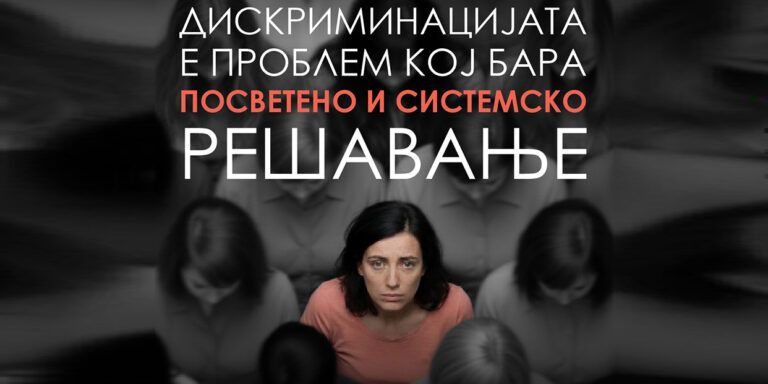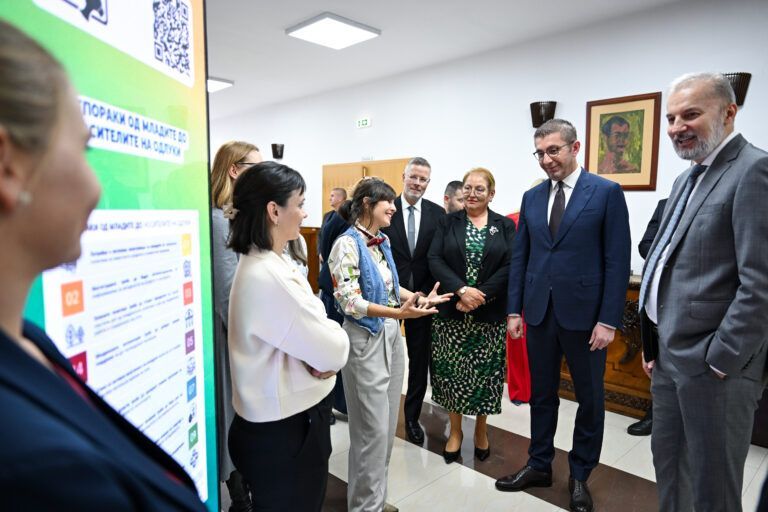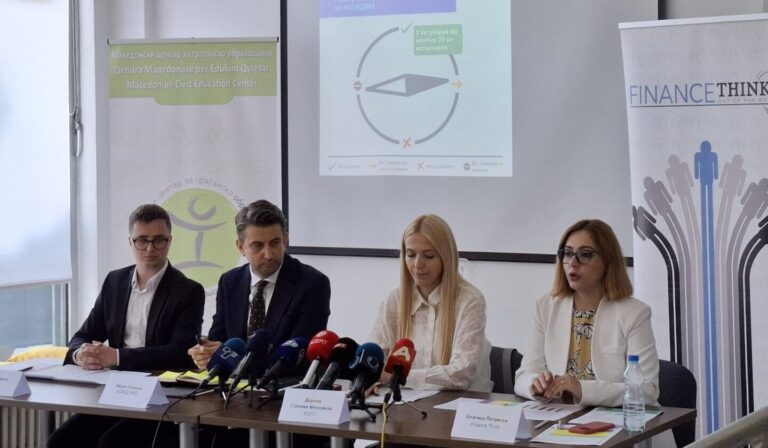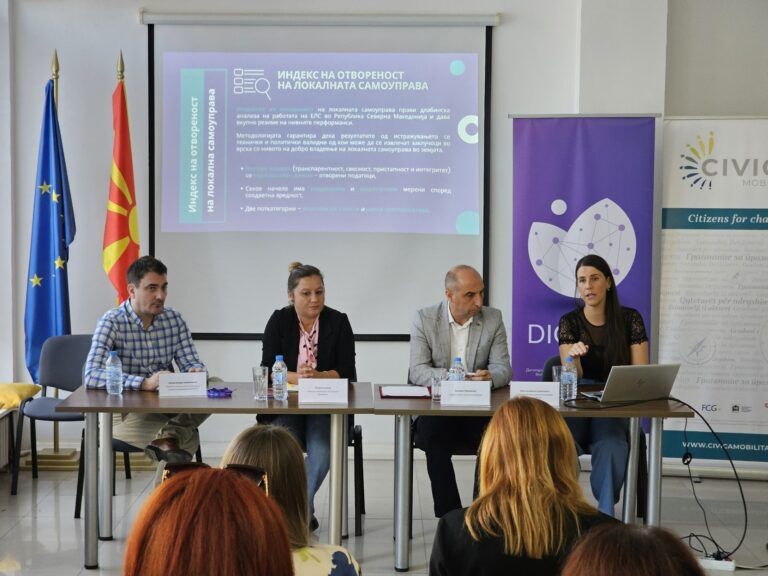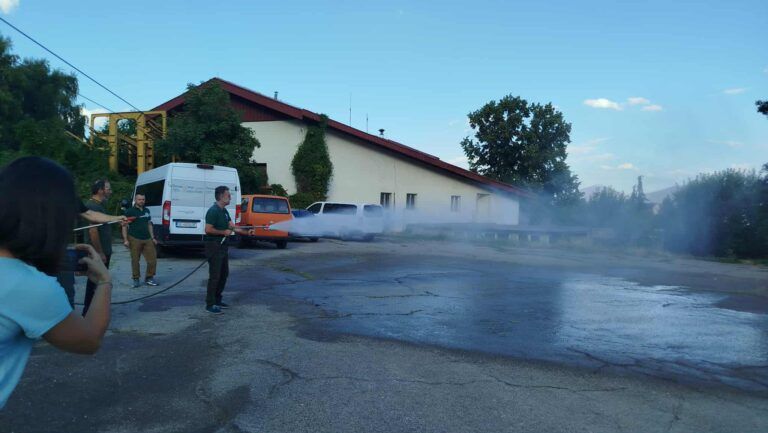THE HOMELESS – INVISIBLE, THEIR LIVES – WORTHLESS (II)
Police patrol: “What should we do with him, take him home? There are many like him in Skopje.”
Authors: Sandra Nikchevska, Iva Andrevska, Monika Sebik
A home without an address, without a street name, without a number. The coldest home in the city. The harshest in both summer and winter. And the most unsafe for its residents – the home of the homeless.
And there are quite a few of them. In Skopje alone, more than 300 of our fellow citizens. The ground is their mattress, the sky their blanket. They suffer from hunger, cold, heat. And from hooligans.
Verbally harassed, beaten, even killed – these are additional horrors added to the already grim reality of life for Macedonia’s homeless.
Life on the street is, by definition, harsh. Sleeping on a bench, on cardboard, covering yourself with plastic in the rain, with a blanket at minus 30 degrees – this goes beyond the bounds of the most inhumane existence. Can the housed and the institutions understand this? Some can, some cannot. The safety of the homeless is a matter of complete social neglect for human life.
THE FACE OF HUMANITY IS KEPT WHITE BY HUMANE CITIZENS
Recently, with the first cold wave of the year, public attention on social media was drawn to the involvement and testimony of Skopje resident Matea Mateva about a case involving a freezing homeless man.
The man, who had spent two days freezing in very poor health on a street bench in front of Mateva’s apartment building, awaited the mercy of the institutions after residents intervened.
With the excuse that he was homeless, neither the police nor the ambulance responded adequately. The authorities’ answers were along the lines of: “What should we do with him, take him home? There are many like him in Skopje.”
“In poor health, immobile and freezing, instead of receiving help from the police, they threatened that they could even fine him for disturbing public order and peace. We had to get to the social workers for them to agree to take the man from the ambulance, which was two kilometers away, and we waited for it for a full 40 minutes,” Mateva recounted.
Homeless man N.K. from Skopje agreed to testify about the inappropriate treatment he received from institutions.
“I have reached out to many institutions, but they all brush you off. I’ve been homeless for a long time. I’m not at all satisfied with the institutions responsible for dealing with the homeless. On the surface, they help, but not as much as they should.
Right now, I’m living in an abandoned building. The Red Cross is nowhere to be found. They offer no help whatsoever. Several times when I’ve asked for help from them, they said there was none. Once they gave me something, but later said they no longer had permission to provide help, food, clothes, and so on.
Five years ago, I asked for their help. They gave me some food assistance. A few years later, I asked again, but they said they couldn’t and no longer provided that type of help. I get no help from anyone. Many times I’ve been chased away, harassed by police for reasons unknown, even though I’ve done nothing to disturb public order. I’ve even been mistreated. I’ve sent requests to the Basic Court Skopje, but never received any kind of reply,” N.K. adds.
“EVERYONE SEES US, NO ONE NOTICES US.”
Another Skopje resident, H.L., also lives on the street. His home is in the city center, out in the open, behind the main post office facing the Vardar River.
“In winter, the warehouse entrance arches of the post office, along with cardboard and plastic sheets, give me some protection from the rain and cold. In summer, I move closer to the riverbank itself. It’s nicer there, but there are more passersby, and among them, all kinds of people.
Especially at night, groups of young and drunk people can be very aggressive, but I’m not a beggar to have money for them to take. I’m 60 years old, I don’t ask anything from the state, and I don’t even have an ID card.
I’m here now, but I change locations, not so much because of security staff from nearby buildings, but more due to aggressive homeless people and other inconsiderate citizens,” he says.
For those suffering, the most caring organization is the Red Cross of Macedonia.
“In terms of research into this issue, there are no serious quantitative studies, so the figure of 300 homeless people in Skopje comes from unofficial sources. There is no relevant nationwide statistic for this socio-pathological phenomenon,” says coordinator Dragana Lazarevska.
Stavre Dzhikov, an experienced lawyer and former state public prosecutor, says that even ordinary citizens struggle to pursue justice to the end in Macedonia, let alone the homeless.
“I don’t believe homeless people could see justice served. Even ordinary citizens struggle to get justice, much less a socially marginalized group like the homeless. The problem is that there are no lawyers working on these cases. It would be good to have a special humanitarian organization providing legal assistance only to these groups of citizens.”
Uranija Pirovska from the Helsinki Committee also emphasizes, based on experience, that homeless people in our institutions would not be able to see justice through.
“They are always those invisible victims the rest of the population doesn’t want to talk about. No one cares why or how they died,” she says.
THE STATE HAS NEITHER A PROGRAM NOR A STRATEGY FOR SHELTERING THE HOMELESS
At the Ministry of Labor and Social Policy, the highest state institution responsible for the care of homeless people, the staff in the Social Sector were unwilling to answer whether the state has a unified register of homeless persons or any programs for their accommodation and protection.
Fortunately, the NGO sector is more active and cooperative.
“At the Red Cross homeless shelter, since it opened in 2008, during its nine years of operation, a total of 250 homeless individuals have been recorded, even if only for a short stay. Currently, 65 homeless people visit regularly, and on open days, an average of 45 are present,” explains Dragana Lazarevska from the Red Cross.
The periodical “Face to Face” specializes in topics about people with special needs, but its journalistic focus also includes the homeless.
“Face to Face magazine is one of the pioneers of social entrepreneurship in our country. Under this concept, half of the sale price goes directly to the sellers. One homeless person and one street youth are now successfully integrated into a well-known, very successful company, thus solving their housing problem. Another five sellers received temporary employment opportunities,” says journalist Aneta Risteska.
“Many of the sellers, thanks to this engagement, have made improvements to their homes, lifting themselves above the red line of substandard living conditions. In short, the Face to Face program helps sellers be recognized as independent individuals ready to give a new, positive dimension to their lives, with a focus on work,” she adds.
TO BE CONTINUED…
The Center for Investigative Journalism SCOOP Macedonia is a recipient of an institutional grant from the Civica Mobilitas program.


